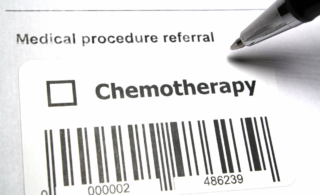
Let's Nail Breast Cancer - Help support our urgent appeal on the 19th - 20th May 2024
Let's Nail Breast Cancer - Help support our urgent appeal on the 19th - 20th May 2024
Let's Nail Breast Cancer - Help support our urgent appeal on the 19th - 20th May 2024
Let's Nail Breast Cancer - Help support our urgent appeal on the 19th - 20th May 2024
Let's Nail Breast Cancer - Help support our urgent appeal on the 19th - 20th May 2024
So you have been told that you need to have chemotherapy. It sounds scary. It’s daunting. It’s plain terrifying. It’s not what you want to be doing. But maybe by taking back a little bit of control and preparing for it, you might feel less daunted. Here are some suggested questions to ask the chemo nurses, although a lot of these will be hopefully answered by the oncologist/nurses before you even have a chance to ask. We’ve written this article from our experience as patients and we encourage you to speak to your medical team about your personal situation.
If your hospital invites you to have a tour of the chemo ward before your first chemo session, go to this. It’s invaluable because you get to see where you will be having your chemo, how you will be having the chemo and the nurses will give you advice on a whole range of things from possible side effects to what to wear. Go armed with your list of questions and take a notepad and pen to jot down any information that you are given.
1. Which chemotherapy drugs will I be given – what are their full names? (You can then look them up on the Cancer Research UK list of chemo drugs to see what sort of side effects to expect.) Hopefully the oncologist will have explained all this to you already, but as with everything at the moment, it’s easy to forget some of the things you’re told or you may wish to recap on this. Also note that your oncology nurse will check your understanding when she/he asks for your consent to treatment.
2. What are the common side effects associated with those chemo drugs?
3. Do you have a list of which side effects I need to call you about?
4. Does the chemotherapy drugs I’m having, have any impact on my eyes, heart or bone health and if so, what I can I do to counter any side effects/problems?
5. What are the contact numbers for getting in touch with you if I have concerns about my side effects? Do you have numbers for day and night concerns?
6. What is the procedure and timing for taking my bloods? Do I have them done the day before and if there is a problem do you call me? And how will I have a Covid swab/lateral flow test before each cycle?
7. How will the chemo be given to me? PICC line? Port? Cannula? (If you have a port, you can ask if you should apply EMLA cream to the site before coming in for your chemo.)
8. What time should I arrive on the day of my chemo?
9. Is there anything in particular that I should bring with me when I come for chemo?
10. How long will I be in hospital when I come for chemo and will it be the same length of time each visit?
11. Will I need to bring any food or drinks with me – should I bring my own lunch?
12. Will I be sitting in a room with other breast cancer patients, or a mix of patients?
13. Do you offer the cold cap?
14. If I decide I would like to try the cold cap do I need to bring anything with me such as conditioner, comb, scarf?
15. How often will I see the oncologist?
16. Will I be given any immunity boosting injections, and if so how will these be administered (by a nurse or at home by me)?
17. Do the immunity boosting injections have any side effects?
18. Can I take any over the counter medication? For example, hayfever medication, paracetamol, indigestion tablets and so on?
19. What pre-meds and post-meds will I be given?
20. If the treatment is likely to cause my hair to fall out, do you provide support for this and advice on purchasing wigs?
21. Does the hospital have any support groups or a counselling service?
Further information
For a downloadable and printable version of this checklist, see here.
Future Dreams hold a range of support groups, classes, workshops and events to help you and your carers during your breast cancer diagnosis. These are held both online and in person at the London-based Future Dreams House. To see what’s on offer and to book your place, see here.
To return to the homepage of our Information Hub, click here where you can access more helpful information, practical advice, personal stories and more.
Reviewed February 2023
The information and content provided on this page has been written from a patient’s perspective then reviewed by a breast care nurse and it is intended for information and educational purposes only. It is not intended to substitute for professional medical advice. Please contact your medical team for advice on anything covered in this article and/or in relation to your personal situation. The links and/or recommendations in this article to third-party resources are for your information and we take no responsibility for the content contained in those third-party resources.
Share

Support awareness research
Donate to those touched by BREAST cancer
Sylvie and Danielle began Future Dreams with just £100 in 2008. They believed nobody should face breast cancer alone. Their legacy lives on in Future Dreams House. We couldn’t continue to fund support services for those touched by breast cancer, raise awareness of breast cancer and promote early diagnosis and advance research into secondary breast cancer without your help. Please consider partnering with us or making a donation.




